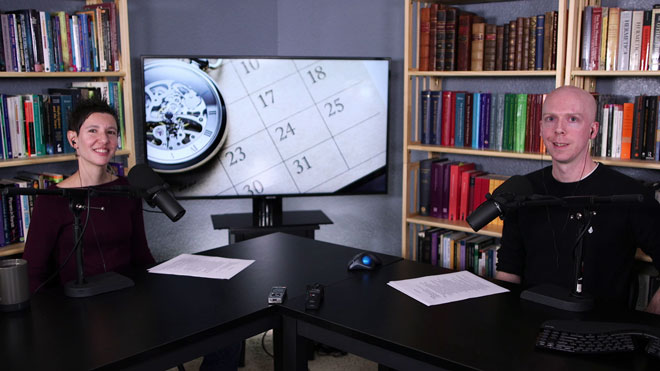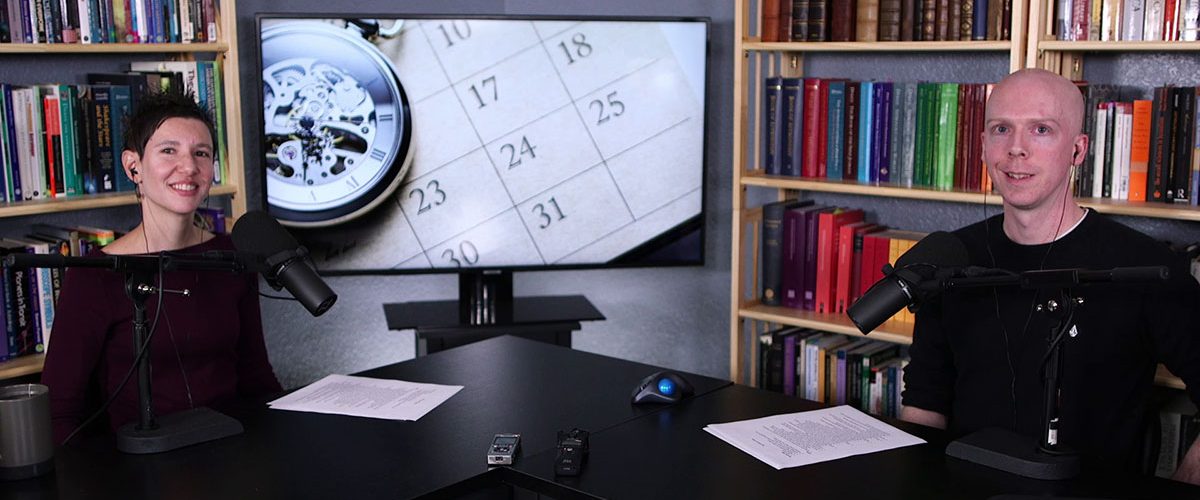
In episode 229 of the podcast, astrologers Leisa Schaim and Chris Brennan discuss whether age is a relevant prerequisite for practicing astrology, and if it is ok to read charts for clients prior to your Saturn return.
The premise of the discussion is that a debate comes up occasionally in the astrological community over how old a person should be to do consultations. Usually astrologers start off by reading charts for friends and family members for free early in their studies, and then eventually the process of starting to charge for astrological readings is seen as a major step or transition point in one’s path as an astrologer.
Since astrology is a largely unregulated field, each astrologer ultimately has to decide on their own when they are ready to start seeing clients. When this topic is discussed among professionals, lots of different criteria are usually suggested for determining when a person is “ready”, and occasionally age is put forward as a potential piece of criteria or a requirement for practicing.
This piece of criteria is then sometimes proposed as a sort of rule or prohibition: that astrologers shouldn’t see clients either until they have reached or potentially only after they have completed their Saturn return, which occurs between the ages of 27 and 30.
While this rule is not generally accepted in the astrological community, as a proposal it sometimes elicits strong reactions from younger astrologers, since it would essentially mean that astrologers can’t or shouldn’t do consultations until their 30s.
A debate about this recently broke out on Twitter, and the goal of this episode was to talk about the general topic, without necessarily focusing on the recent debate itself. It is an interesting topic that comes up in the community from time to time, and in some ways it has become more relevant again recently after the large influx of younger astrologers into the community over the past few years.
As a former 20-something astrologer and past President of the Association for Young Astrologers, Chris has a strong opinion that astrologers should be able to practice astrology in their 20s, although the goal with this discussion was to try to explore and present some of the pros and cons on both sides of the issue.
This episode is available in both audio and video versions below.
Watch the Video Version of This Episode
Here is the video version of this episode on practicing astrology before your Saturn return:
–
Transcript
A full transcript of this episode is available: Episode 229 transcript
Listen to the Audio Version of This Episode
You can either play the audio version of this episode of the podcast directly from the website or download it as an MP3 to your device by using the buttons below:
Podcast: Play in new window | Download (Duration: 2:10:13 — 89.8MB)


Can we talk about accessibility and astrology? Although Ive grown up with astrology and practice it now professionally I have never been to a conference because of the cost involved (for travel to conference, expensive ticket prices, and cost of basics like food)
While I agree having a sense of community is incredibly important in this sector I wonder what does that look like outside of the internet for people with less access to wealth- Can we talk about this more as we know that limiting our access to other professionals in this field is in fact limiting the field as a whole and what these conferences have to offer. We can look at this through the lens of class, race, gender, etc.
There are a number of organizations and programs that offer scholarships and other financial aids to attempt to help lower income, younger, or minority groups attend conferences. When I was the President of the Association for Young Astrologers this was one of the primary things that we did, in order to try to make it so that newer and younger astrologers could make it to conferences, since the cost can often be prohibitive otherwise. Similarly, NORWAC has been offering a diversity scholarship over the past few years, and AFAN gives out grants each year that have covered entire conference trips for people who applied in the past. Often the main issue is that not a lot of people apply, and so I’ve tried to do what I can to spread the word about some of these opportunities when they are available. While I understand that the broader point you may be raising is that these events are often too expensive for many people in general, unfortunately there isn’t really a lot that can be done about that, as the margins for these conferences is often not as large as you would think, and no one is really making much off of them. Instead it ends up being more of a community service that involves a lot of volunteers, just in order to allow it so that there can be a space where people can get together from time to time. This was discussed a bit at one point in episode 217 with Ray Merriman on organizing astrology conferences.